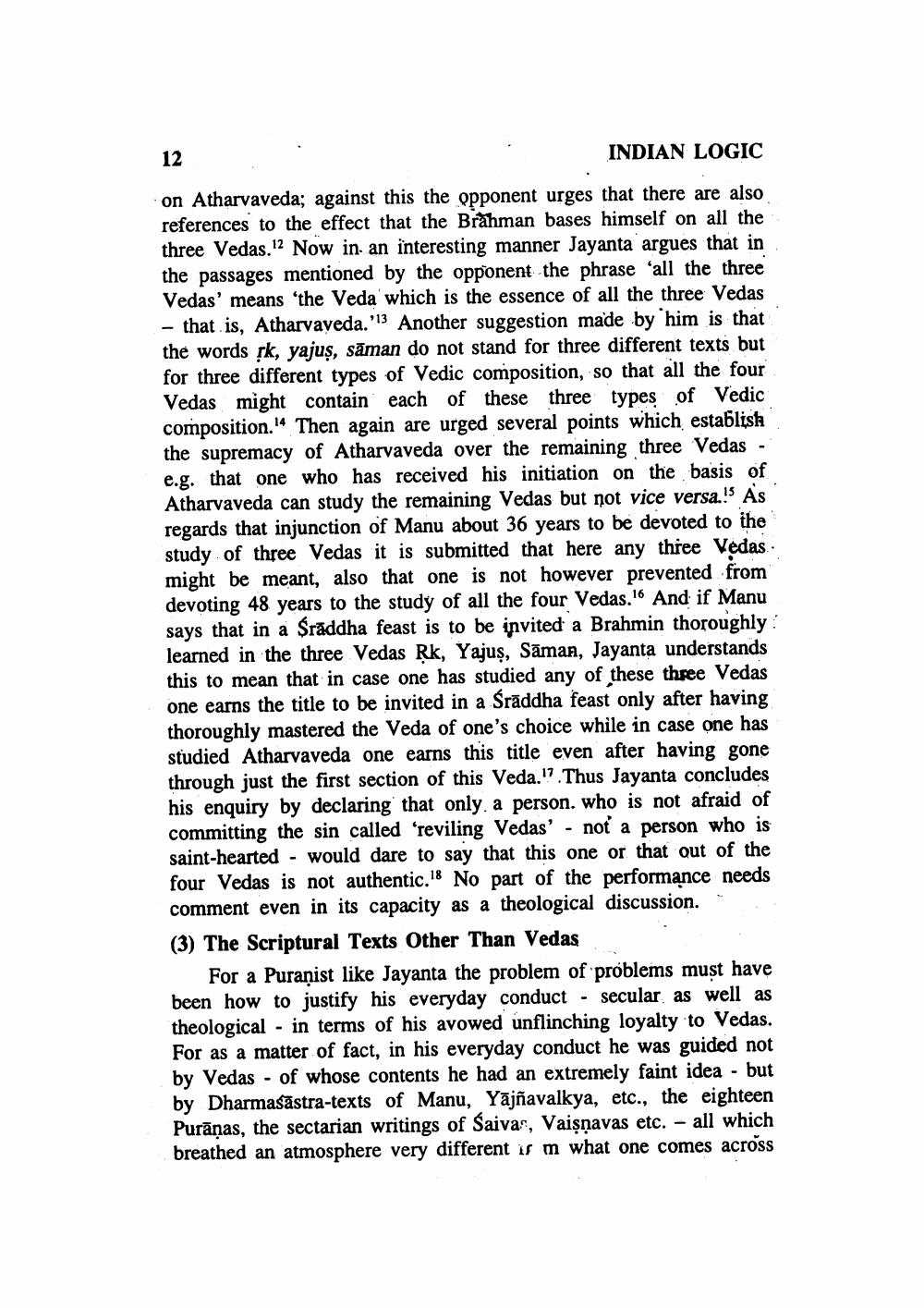________________
INDIAN LOGIC
on Atharvaveda; against this the opponent urges that there are also references to the effect that the Brāhman bases himself on all the three Vedas. Now in an interesting manner Jayanta argues that in the passages mentioned by the opponent the phrase "all the three Vedas' means 'the Veda which is the essence of all the three Vedas - that is, Atharvaveda.''3 Another suggestion made by him is that the words rk, yajus, sāman do not stand for three different texts but for three different types of Vedic composition, so that all the four Vedas might contain each of these three types of Vedic composition. Then again are urged several points which establish the supremacy of Atharvaveda over the remaining three Vedas - e.g. that one who has received his initiation on the basis of Atharvaveda can study the remaining Vedas but not vice versa.!! As regards that injunction of Manu about 36 years to be devoted to the study of three Vedas it is submitted that here any three Vedas.. might be meant, also that one is not however prevented from devoting 48 years to the study of all the four Vedas.16 And if Manu says that in a Sraddha feast is to be invited a Brahmin thoroughly learned in the three Vedas Rk, Yajus, Sāman, Jayanta understands this to mean that in case one has studied any of these three Vedas one earns the title to be invited in a Srāddha feast only after having thoroughly mastered the Veda of one's choice while in case one has studied Atharvaveda one earns this title even after having gone through just the first section of this Veda.? Thus Jayanta concludes his enquiry by declaring that only, a person. who is not afraid of committing the sin called 'reviling Vedas' - not a person who is saint-hearted - would dare to say that this one or that out of the four Vedas is not authentic.18 No part of the performance needs comment even in its capacity as a theological discussion." (3) The Scriptural Texts Other Than Vedas
For a Puranist like Jayanta the problem of problems must have been how to justify his everyday conduct - secular as well as theological - in terms of his avowed unflinching loyalty to Vedas. For as a matter of fact, in his everyday conduct he was guided not by Vedas - of whose contents he had an extremely faint idea - but by Dharmaśāstra-texts of Manu, Yājñavalkya, etc., the eighteen Purāņas, the sectarian writings of Saivas, Vaisnavas etc. - all which breathed an atmosphere very different is m what one comes across




